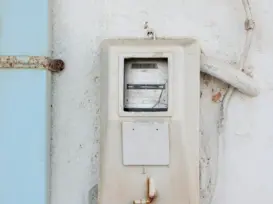Grus Home Energy - Kilowatt hour (kWh)
The Importance of Understanding Kilowatt Hour (kWh) in Energy Consumption
Energy consumption is a significant aspect of our daily lives, and understanding the concept of a kilowatt hour (kWh) is crucial in managing our energy usage effectively. A kilowatt hour is a unit of measurement used to quantify the amount of energy consumed over time. It is commonly used by utility companies to determine how much electricity a household or business has used, and subsequently, how much they need to pay for that usage.
One kilowatt hour is equal to the amount of energy used by a 1,000-watt appliance in one hour. To put it into perspective, running a 100-watt light bulb for 10 hours consumes 1 kilowatt hour of energy. The cost of 1 kWh varies depending on where you live and your utility provider, but on average, it ranges from $0.10 to $0.30.
Understanding kWh is essential for several reasons. Firstly, it allows consumers to track their energy usage and identify areas where they can reduce consumption to save money and reduce their carbon footprint. By monitoring kWh usage, individuals can make informed decisions about their energy habits, such as turning off lights when not in use, unplugging appliances, or upgrading to more energy-efficient devices.
Furthermore, knowing how to calculate kWh usage can help consumers estimate their monthly electricity bills more accurately. By multiplying the number of kilowatt hours consumed by the cost per kWh, individuals can anticipate how much they will need to budget for their energy expenses. This level of awareness can prevent surprises when the bill arrives and enable better financial planning.
Businesses also benefit from understanding kWh, particularly those with high energy demands. By monitoring and managing their kWh usage, companies can identify inefficiencies in their operations and implement strategies to reduce energy waste. This can lead to significant cost savings and improve the company’s sustainability practices, which can be attractive to environmentally-conscious consumers.
Moreover, understanding kWh is crucial for promoting energy conservation on a larger scale. As our society grapples with the challenges of climate change and limited natural resources, reducing energy consumption is a critical step towards a more sustainable future. By educating individuals and businesses about the impact of their energy usage and empowering them to make informed choices, we can collectively work towards a greener and more energy-efficient world.
In conclusion, the concept of a kilowatt hour (kWh) plays a vital role in managing energy consumption effectively. By understanding and monitoring kWh usage, individuals and businesses can save money, reduce their environmental impact, and contribute to a more sustainable future. It is essential for everyone to be aware of their energy usage and take steps to minimize waste and maximize efficiency. Ultimately, by embracing the principles of energy conservation, we can create a better world for future generations.
©2025 All Rights Reserved. Grus IoT Co.,Ltd.
